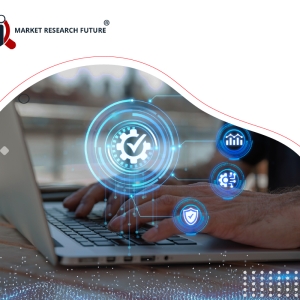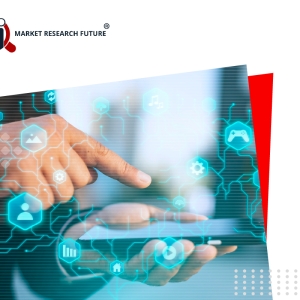The global digital environment has expanded dramatically, and at the core of this transformation lies the continuously evolving app industry. The rise of smartphones and connected devices has led to an unprecedented demand for mobile applications across personal, professional, and industrial domains. According to recent industry evaluations, Mobile App Development Market Size was estimated at 94.4 USD Billion in 2024. The Mobile App Development industry is projected to grow from 116.87 USD Billion in 2025 to 988.5 USD Billion by 2035, exhibiting a compound annual growth rate (CAGR) of 23.8% during the forecast period 2025–2035. These numbers reflect how deeply mobile applications are now woven into global digital engagement, influencing the way consumers shop, communicate, travel, entertain, and manage daily activities. With developers pushing boundaries and organizations integrating mobile-first strategies, applications have become essential tools in shaping the future of interactive technology.
One of the major contributors to this growth is the rapid evolution of development frameworks and toolkits that simplify and accelerate the creation of sophisticated mobile applications. Cross-platform solutions such as Flutter and React Native have enabled developers to write a single codebase and deploy apps across multiple operating systems with minimal adjustments. This efficiency has opened new doors for startups and enterprises who seek to engage users through versatile digital experiences. As businesses shift toward seamless, unified digital ecosystems, the app industry continues to expand its influence across commercial sectors, offering smarter and more intuitive solutions. Companies are also leveraging cloud-based technologies to build scalable, secure applications capable of supporting millions of users.
Another significant element driving the rise of mobile app development is the integration of artificial intelligence and machine learning. These innovations have enabled applications to deliver hyper-personalized services such as predictive recommendations, automated workflows, voice-driven interactions, and smart analytics. Consumers are increasingly expecting intuitive interfaces that adapt to their habits, preferences, and needs. From customized shopping experiences to intelligent health trackers, AI-powered applications have become central to modern user expectations. Additionally, industries like finance and healthcare are using AI-enhanced apps to streamline services, improve diagnostic accuracy, reduce operational inefficiencies, and foster user trust through personalized and secure features.
As technological innovation accelerates, so does the demand for enhanced app performance. With the rollout of 5G networks, apps are gaining the ability to process and deliver content at unprecedented speeds. The high bandwidth and low latency of 5G are enabling app categories such as cloud gaming, augmented reality, and remote collaboration to reach new levels of efficiency and engagement. This shift in network capabilities is paving the way for immersive digital experiences that were previously restricted by connectivity limitations. Companies across the entertainment, education, and enterprise productivity sectors are investing extensively in 5G-compatible applications to meet rising expectations for real-time interaction and high-quality multimedia streaming.
However, the increasing reliance on mobile apps has also heightened concerns surrounding data security and user privacy. Cybersecurity threats, data breaches, and unauthorized access have pushed organizations to adopt strong security protocols in app development. Measures such as biometric authentication, advanced encryption standards, and multi-layered security infrastructures have become essential components of modern mobile applications. Furthermore, regulatory guidelines across regions require companies to maintain transparency in data handling and ensure responsible user information management. This shift toward privacy-first app development is strengthening user confidence and encouraging broader adoption of digital services.
Looking ahead, the application ecosystem is expected to continue its expansion, driven by technological innovation, evolving user expectations, and global digital transformation initiatives. Applications will play a central role in shaping modern business operations, redefining user experiences, and supporting emerging technologies such as smart devices, connected environments, and automated workflows. As companies embrace digital strategies and invest in long-term mobile solutions, the landscape of mobile application development will remain a driving force behind global technological progress.
More Reports:
Germany Big Data Software Market
India Big Data Software Market
Japan Big Data Software Market
South Korea Big Data Software Market
Spain Big Data Software Market
Brazil Bare Metal Cloud Market
About Market Research Future:
Market Research Future (MRFR) is a global market research company that takes pride in its services, offering a complete and accurate analysis regarding diverse markets and consumers worldwide. Market Research Future has the distinguished objective of providing the optimal quality research and granular research to clients. Our market research studies by products, services, technologies, applications, end users, and market players for global, regional, and country-level market segments enable our clients to see more, know more, and do more, which help answer your most important questions.




